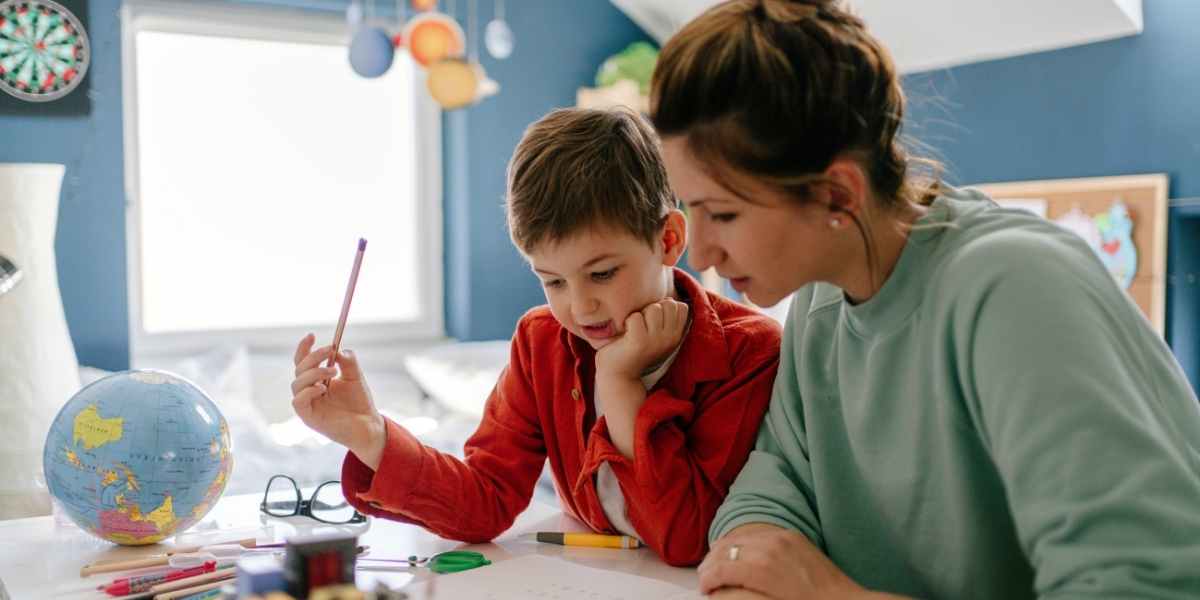Contents
- Homeschooling can cause socialisation difficulties
- Homeschooled children miss out on big milestone events
- Homeschooling can be expensive
- Homeschooling requires a lot of planning and discipline
- Homeschooling isn’t easy but can be worth it
Traditional schooling works for most students. However, for some children and their families, homeschooling is an appealing option. Since the onset of the COVID-19 pandemic, the lines between homeschooling and traditional schooling have blurred.
According to the Office of National Statistics, 77% of parents said they homeschooled their children between April and May 2020, but only half said they were confident in their abilities to do so. Nearly a year later, between January and February 2021, the number of homeschooled children rose to 90%, with half of the parents surveyed saying it was negatively impacting their family’s well being.
While homeschooling during a pandemic is much different than homeschooling under normal circumstances, there’s no doubt it can be a challenging endeavour for even the most well-prepared parents.
Still, home learning is ideal for many families. This is especially true for families who have ideological differences with the traditional schooling system, and for parents who want their children’s education to align with their religion, culture, or belief system.
Learning at home also works well for families who practice a nomadic or otherwise unconventional lifestyle. In addition, the uniformity of traditional schooling can also be challenging for children with medical or behavioural concerns, making homeschooling a very viable choice for these students.
Homeschooling has many advantages. However, many parents believe there are reasons why students should not be homeschooled. Before you make the choice to educate your child at home, it’s important to consider any potential disadvantages. Is homeschooling harmful for children? We’re here to fill you in.
1. Homeschooling can cause socialisation difficulties
When people wonder “what is the biggest disadvantage of homeschooling,” many assume it’s that homeschooling will stunt a child’s social development. When educated at home, children lack the daily socialisation that comes with a traditional schooling environment.
A homeschooled child misses out on seeing the same classmates five days a week, potentially making it difficult to form friendships. Children learning at home also lack daily exposure to large groups, giving them fewer opportunities to practise socialising with many people at once.
If you’re concerned about how does homeschooling negatively affects social skills, there are ways to mitigate the issue. Parents can make socialising a priority for their homeschooled children. This can come in the form of homeschooling groups or extra-curricular activities such as sport, dance, or art. Though homeschooled children may not learn to socialise in a conventional way, they can still have many opportunities to make friends.
2. Homeschooled children miss out on big milestone events
Most adults who went to traditional school can recall some of the big moments from their schooldays, such as graduation ceremonies, school dances, and other significant school-wide events. Homeschooled students miss out on these big celebrations, which are often full of joy and excitement, and can grow up to feel left out as a result.
However, you can still commemorate big achievements with at-home learning, too. Instead of a graduation ceremony, for example, you can do a weekend trip away as a family, or cook an extra special dinner. Homeschooling allows you to do things in a way that works best for your family, and that can apply to celebrations, too!
3. Homeschooling can be expensive
Parents educating their children at home are financially responsible for their child’s education. These costs can be direct, like computers, school books, and educational trips and excursions. However, if a parent is leaving the workforce to educate their child at home, that loss of income can be a real financial hit, too. There are other costs that can accrue as well, such as a higher grocery bill and out-of-pocket costs for pre-university exams.
Before you make the decision to educate your child at home, do some research and create a budget. As with any budget, it’s advisable to assume your costs will be higher than you think. It’s always better to have money left over than not have enough!
4. Homeschooling requires a lot of planning and discipline
You already know being a parent is hard work, but being a parent and a teacher at the same time is an even bigger challenge. When educating your child at home, you are responsible for crafting a curriculum, administrating and grading exams, enforcing schedules, and motivating your child–on top of all your normal parenting duties!
Homeschooling’s flexibility is one of its greatest advantages, but the lack of framework means parents need to put in extra effort to make schooling effective. Learning at home also requires boundaries to be put in place between school time and leisure time, which can be challenging. However, with time, patience, and adaptability, any parent can find a homeschooling routine and system that works well for their family.
Homeschooling isn’t easy but can be worth it
As you can see, homeschooling certainly has its disadvantages. It can be expensive, stressful, and socially isolating. However, if traditional schooling isn’t working for your child, it’s still wise to pursue homeschooling. Homeschooling can take extra effort and planning, yet the hard work can certainly be worthwhile if it improves your child’s happiness and chances of success.
Just because you’re teaching your child at home, doesn’t mean you have to do it all alone! GoStudent’s world-class tutors can help you supplement your own at-home curriculum and give your child the best education possible. Sign up for your free trial lesson today and see why we’re the #1 Rated Global School.










